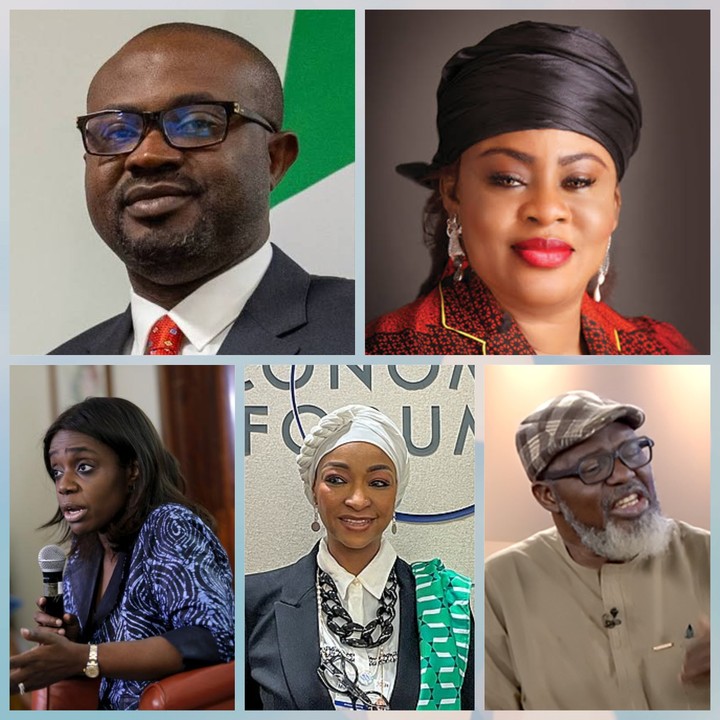It is no longer news that following a detailed investigation by PREMIUM TIMES, the University of Nigeria, Nsukka (UNN) has formally disowned the Bachelor of Science degree certificate presented by a serving minister, stating that the politician neither completed his academic programme nor graduated from the institution.
According to the report, Professor Simon U. Ortuanya, the Vice-Chancellor of UNN, confirmed that although the minister, Nnaji, was admitted to the university in 1981, official academic records revealed that he did not complete his studies and was never awarded a degree. The revelation has intensified scrutiny of the minister’s credentials and reignited public debate over forgery and credential fraud among top government officials.
PREMIUM TIMES further disclosed that the National Youth Service Corps (NYSC) also distanced itself from the certificate of national service allegedly held by the minister. NYSC authorities reportedly described the document as “strange” and said it could not be verified within their records, suggesting that it might not have been issued through any official channel.
The controversy surrounding Nnaji adds to a growing list of Nigerian public officials who have faced credential scandals — particularly regarding university degrees, NYSC certificates, and professional qualifications. Below is a look at some of the most notable cases that have tested the integrity of Nigeria’s political class.
KEMI ADEOSUN
Perhaps the most widely known of such cases is that of Kemi Adeosun, the former Minister of Finance under President Muhammadu Buhari. Appointed in 2015, Adeosun’s tenure came under fire in 2018 after reports emerged that she had presented a forged NYSC exemption certificate. The document, dated 2009, was later found to bear the signature of a former NYSC Director-General who had already retired months before that date, raising questions about its authenticity.
The NYSC confirmed that Adeosun had applied for an exemption but declined to validate the certificate she submitted. Under intense public pressure, she resigned in September 2018, admitting that she had obtained the certificate in good faith but had been misled about its legitimacy.
Her resignation sparked a national debate on ethics in public office and the unequal enforcement of Nigeria’s NYSC law, which mandates one year of national service for graduates under 30.
In 2021, a Federal High Court in Abuja ruled that Adeosun was not legally bound to present an NYSC certificate to hold office because she had graduated from a UK university as a British citizen in 1989 — making her ineligible for service at the time. Though the verdict absolved her of legal wrongdoing, it left open ethical questions about due diligence and transparency in federal appointments.
ADEBAYO SHITTU
Another notable case was that of Adebayo Shittu, former Minister of Communications, who was accused of skipping the mandatory NYSC programme after earning a law degree from the University of Ife (now Obafemi Awolowo University) in 1978.
Unlike Adeosun, Shittu did not face allegations of forgery. Instead, he admitted that he never served, arguing that his early election to the Oyo State House of Assembly after law school constituted a “higher form of national service.”
However, the NYSC Act is explicit: every Nigerian graduate below 30 must participate in the one-year service scheme. Since Shittu graduated at 25, he was not exempt. The NYSC maintained that holding political office does not replace national service under the law.
Despite widespread criticism, Shittu insisted he broke no law, noting that the Constitution does not specifically list NYSC completion as a qualification for elective or appointive office — a stance many legal experts dispute.
HANNATU MUSAWA
The current Minister of Art, Culture, and Creative Economy, Hannatu Musawa, was also caught in a similar storm in 2023. Reports surfaced that she was still serving as an NYSC corps member at the time of her ministerial appointment by President Bola Ahmed Tinubu.
Critics argued that serving in public office while undergoing NYSC violated the Act establishing the scheme. The Nigerian Bar Association (NBA) and several civil society groups called for her removal and filed suits challenging her eligibility to hold ministerial office while in active service.
In April 2024, Justice James Omotosho of the Federal High Court, Abuja, dismissed one of the suits, ruling that the plaintiffs lacked the legal standing to sue. Musawa has repeatedly defended her position, insisting that she did nothing wrong and that she completed her NYSC “in line with the law.” Nonetheless, questions persist about the propriety of her appointment during active service.
OLUBUNMI TUNJI-OJO
Another case that drew widespread public interest involved Olubunmi Tunji-Ojo, the Minister of Interior and former member of the House of Representatives. During his ministerial screening in 2023, allegations emerged that he presented a questionable NYSC discharge certificate, with discrepancies in dates and service details.
After weeks of media speculation, the NYSC clarified that Tunji-Ojo’s certificate was authentic, explaining that he was first mobilised in 2006 but failed to complete his service, leading to remobilisation in 2019. He was redeployed to the Federal Capital Territory Administration in Abuja and completed the programme, receiving his certificate in February 2023.
Although the clarification cleared him legally, critics questioned how he could have served concurrently with his legislative duties. Nevertheless, the Senate confirmed his appointment after accepting the NYSC’s explanation, and Tunji-Ojo maintained that the controversy was politically motivated.
STELLA ODUAH
Former Minister of Aviation and one-time senator representing Anambra North, Stella Oduah, has also been mired in a long-standing NYSC controversy. The NYSC revealed that Oduah was mobilised in 1982/83 and posted to Lagos State, but allegedly abandoned the programme shortly after orientation. As a result, she was never issued a discharge certificate.
Despite this, Oduah reportedly claimed in her official records, including those submitted to the Independent National Electoral Commission (INEC), that she completed her service but had lost her certificate. She supported the claim with a police extract and affidavit — documents that investigators later described as false declarations.
In 2023, the Economic and Financial Crimes Commission (EFCC) filed an eight-count charge against her, accusing her of perjury, forgery, and falsification of credentials. The case, which remains before the Federal High Court in Abuja, revolves around allegations that she knowingly submitted false information to public authorities.
Oduah has denied all allegations, describing them as politically motivated. Her legal team insists she was not properly served with the charges and that the EFCC acted prematurely. The NYSC, however, has maintained that she did not complete national service and therefore could not have received a legitimate discharge certificate.
A Broader Crisis of Credibility
The recurring certificate scandals among Nigerian politicians highlight a deep crisis of integrity and documentation in public service. While some have been cleared by the courts, others remain under investigation, fuelling concerns about weak vetting systems and poor institutional accountability.
As public confidence in governance continues to erode, many observers argue that these recurring controversies underscore an urgent need for comprehensive background checks, open verification systems, and stricter enforcement of educational and service requirements for political office holders.
Ultimately, the Nnaji case — like those before it — reflects a broader national challenge: the persistent gap between legal compliance, ethical governance, and the moral expectations of citizens in a democracy that aspires to uphold merit and transparency.


